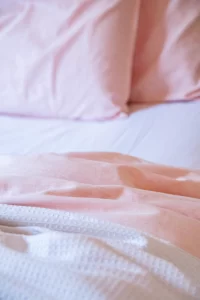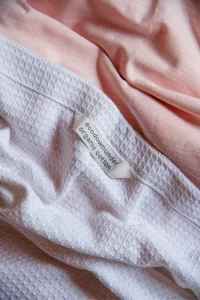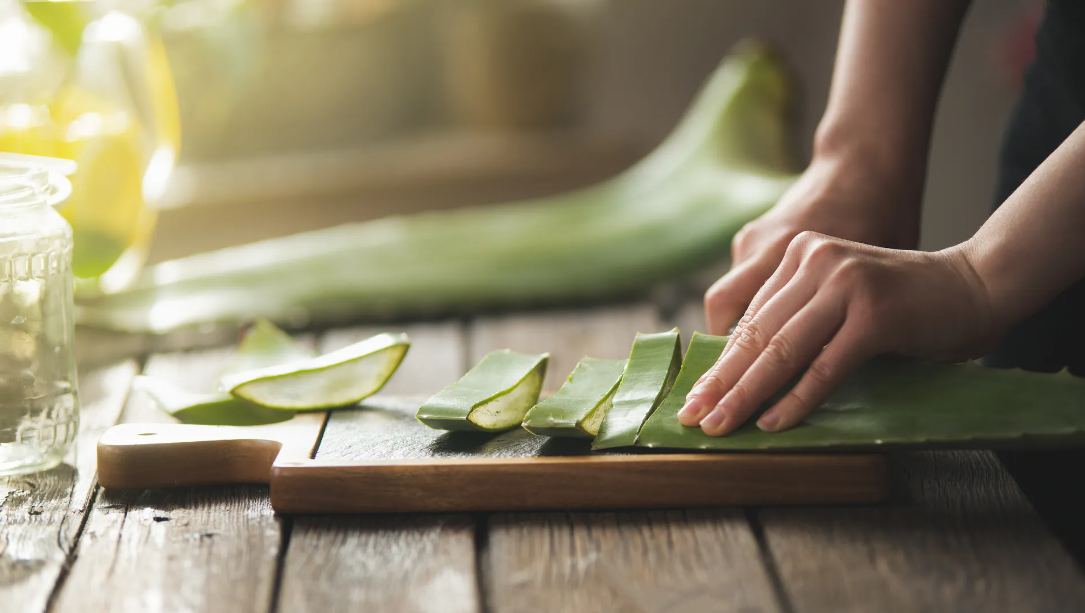
We spend a third of our lives in bed
We spend a third of our lives in bed. If you haven’t stopped to think about the health implications of what you snuggle with, this is your wake-up call.
Most of us sleep in cotton or bamboo bedding, and while cotton may be a natural fiber, it uses more pesticides than any other crop when it’s grown the “conventional” way rather than organically. Chemical pesticides are harmful to human health, and chemicals such as aldicarb and parathion are two of the most dangerous but widely used pesticides in cotton farming.
Classified by the World Health Organization as a “mutagenic” (a chemical that mutates human cells), aldicarb is also a known carcinogen. Parathion can cause birth defects and fetal damage, and is toxic to the immune and reproductive systems. I’m no scientist, but I know enough that I don’t want to spend eight hours a night on aldicarb and parathion for a third of my life.
If you’re hearing the alarm bells I’m hearing (and you haven’t gotten any sleep yet), it’s time to recognize the health effects of conventionally grown cotton and switch to a healthier alternative — organic cotton bedding. Organic cotton is better for your health and uses 71 percent less water and 62 percent less energy to grow than conventional cotton.
Ecodownunder, who share my thoughts on healthy sleep with me, have been pioneers in organic cotton bedding for over 24 years. Based in Sydney’s northern beaches, Ecodownunder is dedicated to creating health-conscious bedding. Their certified organic and eco-cotton range is produced in an ethical manner between Australia and India in a human-centred manner. Their agriculture and staff plan including on-site health care, child care center, subsidised staff canteen, too far from a to live comfortably daily travel staff to provide on-site dormitories, planting fruit and shade, water recycle, transportation to and from the surrounding village minibus, most important of all, moral wages.
Ecodownunder is also committed to reducing plastic waste to protect our oceans and environment, and they are working to eliminate plastic from the entire shipping network. From their suppliers to their warehouses and stores to stores to orders from individual customers – organic cotton bags are slowly replacing plastic, and any plastic packaging still used for protection is recyclable and recyclable.
I’ve been sleeping between classic organic cotton sheets and vintage organic quilt covers for the past month, and I sleep soundly knowing that I’m enjoying non-toxic sleep. I’ve also been snuggling in an organic cotton waffle blanket, which is also perfect for cool nights on the couch.
Switch to more ethical, sustainable and safe bedding, and buy Ecodownunder’s organic, eco-friendly and natural cotton bedding here.









